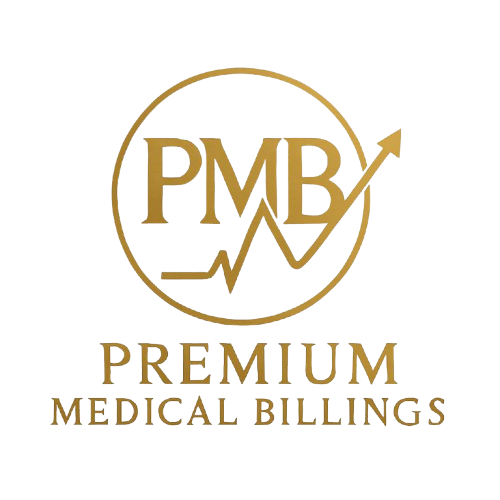HIPAA Compliance

In the healthcare sector, it is paramount for providers to secure and preserve the privacy of patient information to avoid major financial penalties, legal liabilities, and damage to their professional reputation. Enacted in 1996, the Health Insurance Portability and Accountability Act (HIPAA) serves to protect the confidentiality of medical records and personal health information (PHI) while also regulating its electronic exchange. Adherence to HIPAA standards is critical for any healthcare entity that handles sensitive patient data, particularly in the medical billing and coding cycle.
What is HIPAA and Why is It Important?
HIPAA compliance within medical billing involves the proper protection of PHI throughout the entire claims processing journey. This includes the guidelines for using, disclosing, and storing PHI by healthcare organizations, billing agencies, and insurance carriers.
HIPAA regulations mandate that healthcare providers must implement administrative, physical, and technical controls (safeguards) to guarantee the confidentiality, accuracy, and accessibility of PHI. Furthermore, compliance requires practices to regularly train employees on security protocols, conduct thorough risk assessments, and establish contingency plans in case of any data breaches. Failure to adhere to HIPAA standards can lead to severe consequences, including significant financial fines, legal action, and a tarnished reputation for the provider.
In-House Medical Billing and HIPAA Compliance
Large medical practices frequently utilize internal, in-house teams for their medical billing operations. These teams consist of employees of the Covered Entity (the healthcare organization). Because they are directly managed by the CE, these internal teams, along with the corresponding Business Associate Agreements (BAA), are not directly subject to the full scope of HIPAA regulations.
In-house billing can expedite the medical process by granting billing staff immediate access to physicians for diagnostic clarifications. Nevertheless, implementing a reliable, secure communication system and adhering to the Minimum Necessary Standard (only accessing required PHI) remain essential, even when direct staff contact is possible.
Outsourced Medical Billing and HIPAA Compliance
To minimize the expense of hiring and maintaining internal billing personnel, smaller medical practices often choose to delegate the medical billing process to a third-party vendor (outside the patient registration stage). In these cases, the external agency often processes claims on behalf of the Covered Entity, adhering to all payer requirements before submitting and reviewing claims.
Any Covered Entity offering billing services on behalf of another (e.g., a clearinghouse processing for a physician) is generally classified as a Business Associate (BA) under HIPAA guidelines. A Business Associate Agreement must be formally established before any PHI is shared. Even with a BAA in place, the vendor’s role in providing the service is still considered that of a Business Associate.
HIPAA Privacy Rule
The Privacy Rule is a core component of HIPAA that governs how healthcare providers handle and release Protected Health Information (PHI). This rule restricts inappropriate access to medical records and allows patients the right to examine and control their own health data. Furthermore, providers must secure written permission from patients before disclosing PHI to third parties like insurers or other medical professionals. The primary goal is to ensure the complete confidentiality and privacy of patient records and personal health details. Non-adherence to this rule can lead to severe consequences, including financial fines, legal penalties, and reputational damage.
HIPAA Security Rule
The Security Rule outlines mandatory administrative, physical, and technical safeguards that providers must implement to secure PHI. These required measures include establishing robust access controls, data encryption methods, disaster recovery planning, and providing continuous staff training on security policies. The Rule mandates that providers conduct regular risk assessments and develop contingency plans to address potential security breaches and data incidents.
For example, a provider must ensure that only staff with a genuine, work-related requirement can access PHI. They must also encrypt electronic PHI and establish disaster recovery procedures to ensure PHI availability during disasters. Additionally, the Security Rule requires providers to carry out regular security risk assessments to pinpoint potential threats and vulnerabilities, allowing them to proactively resolve security weaknesses before malicious actors can exploit them.
HIPAA Privacy Rule vs. HIPAA Security Rule
Feature
HIPAA Privacy Rule
HIPAA Security Rule
Primary Focus/Goal
Regulates the use and disclosure of Protected Health Information (PHI). It provides individuals with the right to understand and control how their health information is used.
Establishes national standards to protect electronic Protected Health Information (ePHI) from unauthorized access, alteration, deletion, or transmission. It ensures the confidentiality, integrity, and availability of ePHI.
What it Covers (Scope of PHI)
All forms of Protected Health Information (PHI). This includes information in electronic, paper, and oral (verbal) formats.
Only Protected Health Information that is in electronic form (ePHI). It does not cover PHI transmitted or maintained on paper or verbally.
Core Requirement
Covered entities must have appropriate safeguards to protect the privacy of PHI and set limits and conditions on its use and disclosure without patient authorization. This includes following the “minimum necessary” rule when sharing information.
Covered entities must implement administrative, physical, and technical safeguards to protect ePHI.
Patient Rights
Grants individuals rights over their PHI, including the right to access (obtain a copy of) their records, request corrections (amendments), and request an accounting of disclosures. Patients generally must give signed consent for the use or disclosure of their information.
Focuses on the mechanisms to support the confidentiality, integrity, and availability of ePHI, which enables patient rights to be exercised securely. It sets standards for ensuring only authorized individuals have access to ePHI.
Examples of Implementation
Patient must sign consent before data is shared for purposes outside of treatment, payment, and healthcare operations. * Directing computer screens away from public view. * Providing a Notice of Privacy Practices (NPP).
Implementing Access Controls and encryption for electronic systems. * Using strong login systems, such as Multi-Factor Authentication (MFA). * Locking server rooms (Physical Safeguards). * Conducting regular Security Risk Assessments (SRA).
Relationship to Each Other
The Privacy Rule dictates who can see the health data and when. It provides the foundation for protecting PHI.
The Security Rule dictates how to protect the health data when it is digital. It complements the Privacy Rule by focusing on ePHI.
Safeguards Categories
Requires appropriate safeguards (Administrative, Physical, and Technical) for all PHI.
Mandates specific and detailed Administrative, Physical, and Technical safeguards for ePHI.
How Long Does HIPAA Compliance Last?
Under the HIPAA Security Rule, any electronic record containing Protected Health Information (PHI) must be securely stored and maintained for a minimum of six years.
However, this federal requirement can vary depending on individual state regulations, as some states impose different record retention timelines for healthcare organizations. As a result, the duration for which medical facilities must preserve patient data can differ across regions and institutions.
For example, the Centers for Medicare & Medicaid Services (CMS) requires hospitals to retain their records for at least six years, while critical access hospitals must maintain them for a minimum of five years.
Additionally, organizations must also follow Occupational Safety and Health Administration (OSHA) guidelines, which demand that employers keep employee medical records for up to 30 years.
HIPAA Compliance: Key Recommendations for Healthcare Providers
Maintaining HIPAA compliance is essential for protecting patient data during the medical billing process. To ensure privacy and compliance with PHI regulations, healthcare providers should adopt the following best practices:
Develop tailored compliance policies that align with the organization’s specific workflows and requirements.
Implement administrative, physical, and technical safeguards to protect sensitive data.
Provide regular employee training to promote awareness of privacy practices and data security.
Educate staff on recognizing phishing attempts, securing their devices, and reporting security incidents.
Use encrypted email systems or secure file transfer methods when sharing patient information.
Prevent unauthorized access by restricting data transmission to verified personnel only.
Apply role-based access controls and permissions on all digital systems handling PHI.
Review and update security policies regularly to stay aligned with current standards.
Perform internal audits to detect vulnerabilities and areas for improvement.
Evaluate threats from internal sources (employees, contractors, vendors) as well as external ones (cybercriminals, hackers).
Establish a formal incident response team with clear procedures for managing data breaches or compliance issues.
By consistently applying these strategies, healthcare providers can strengthen their data protection framework, maintain HIPAA compliance, and safeguard their reputation. Ignoring compliance obligations can result in heavy financial penalties and long-term reputational damage.
Penalties for HIPAA Violations
Violations of HIPAA regulations can lead to severe legal and financial consequences. The Office for Civil Rights (OCR), part of the U.S. Department of Health and Human Services, oversees HIPAA enforcement and investigates reports of non-compliance.
Depending on the severity of the violation, the civil penalties can range from $100 to $50,000 per violation, with a maximum annual fine of $1.5 million for each category of violation.
In cases of criminal misconduct, such as intentional misuse of patient data, penalties may include fines of up to $250,000 and imprisonment for up to 10 years.
Conclusion
HIPAA compliance is not just a legal requirement—it’s a cornerstone of trustworthy and ethical medical billing. By ensuring full compliance, healthcare providers protect patient confidentiality, reduce the risk of costly fines, and reinforce patient confidence in their practice.
To remain compliant, providers should:
Establish and enforce strong data security policies.
Train staff on HIPAA regulations and cybersecurity awareness.
Limit PHI access strictly to authorized personnel.
Continuously monitor, audit, and update compliance measures.
By following these best practices, healthcare providers can protect patient data, maintain operational integrity, and uphold a strong reputation in the healthcare industry.




